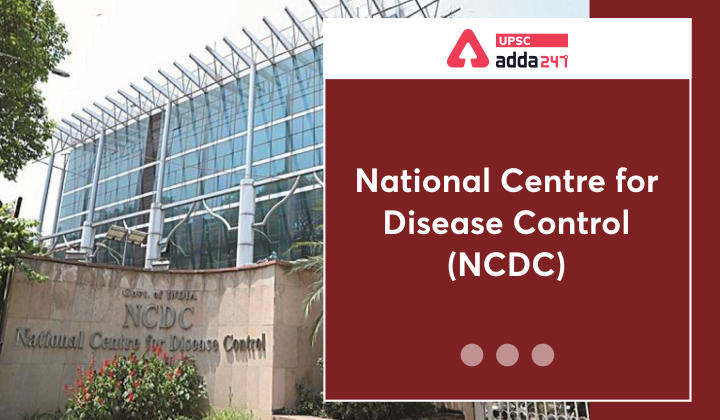Table of Contents
National Centre for Disease Control (NCDC)- Relevance for UPSC Exam
- GS Paper 2: Governance, Administration and Challenges– Issues relating to development and management of Social Sector/Services relating to Health.
National Centre for Disease Control (NCDC)- Context
- Amid a recent outbreak of the Nipah virus in Kerala State, the Union government has rushed a team of the National Centre for Disease Control to the state.
- Earlier, a 12-year-old boy died due to a Nipah virus infection in Kozhikode, Kerala.
National Centre for Disease Control (NCDC)- Key Points
- Background: NCDC which was formerly known as the National Institute of Communicable Diseases (NICD), had its origin as Central Malaria Bureau, established at Kasauli (Himachal Pradesh) in 1909.
- It was renamed as the Malaria Survey of India in 1927.
- In 1938, Institute shifted to Delhi and was renamed as Malaria Institute of India (MII).
- Due to success in containing malaria disease, the Government of India decided to reorganize and expand the activities of the institute to cover other communicable diseases in 1963 and renamed it as NICD.
- Administrative Structure: NCDC is under the administrative control of the Director-General of Health Services, Ministry of Health and Family Welfare, Govt. of India.
- The Director, an officer of the Public Health sub-cadre of Central Health Service, is the administrative and technical head of the Institute.
- Headquarter- New Delhi, India.
- Mandate of the NCDC: It acts as the nodal agency in the country for disease surveillance facilitating prevention and control of communicable diseases.
National Centre for Disease Control (NCDC)- Key Functions
- It functions as a national centre of excellence for the control of communicable diseases.
- NCDC is responsible for undertaking investigations of disease outbreaks all over the country.
- NCDC is also engaged in the generation and dissemination of knowledge in various areas like Epidemiology, Surveillance, and Laboratories etc.
- It provides referral diagnostic services to individuals, communities, medical colleges, research institutions and state health directorates.
- It is also responsible for conducting applied integrated research in various aspects of communicable as well as some aspects of non-communicable diseases.




 TSPSC Group 1 Question Paper 2024, Downl...
TSPSC Group 1 Question Paper 2024, Downl...
 TSPSC Group 1 Answer key 2024 Out, Downl...
TSPSC Group 1 Answer key 2024 Out, Downl...
 UPSC Prelims 2024 Question Paper, Downlo...
UPSC Prelims 2024 Question Paper, Downlo...




